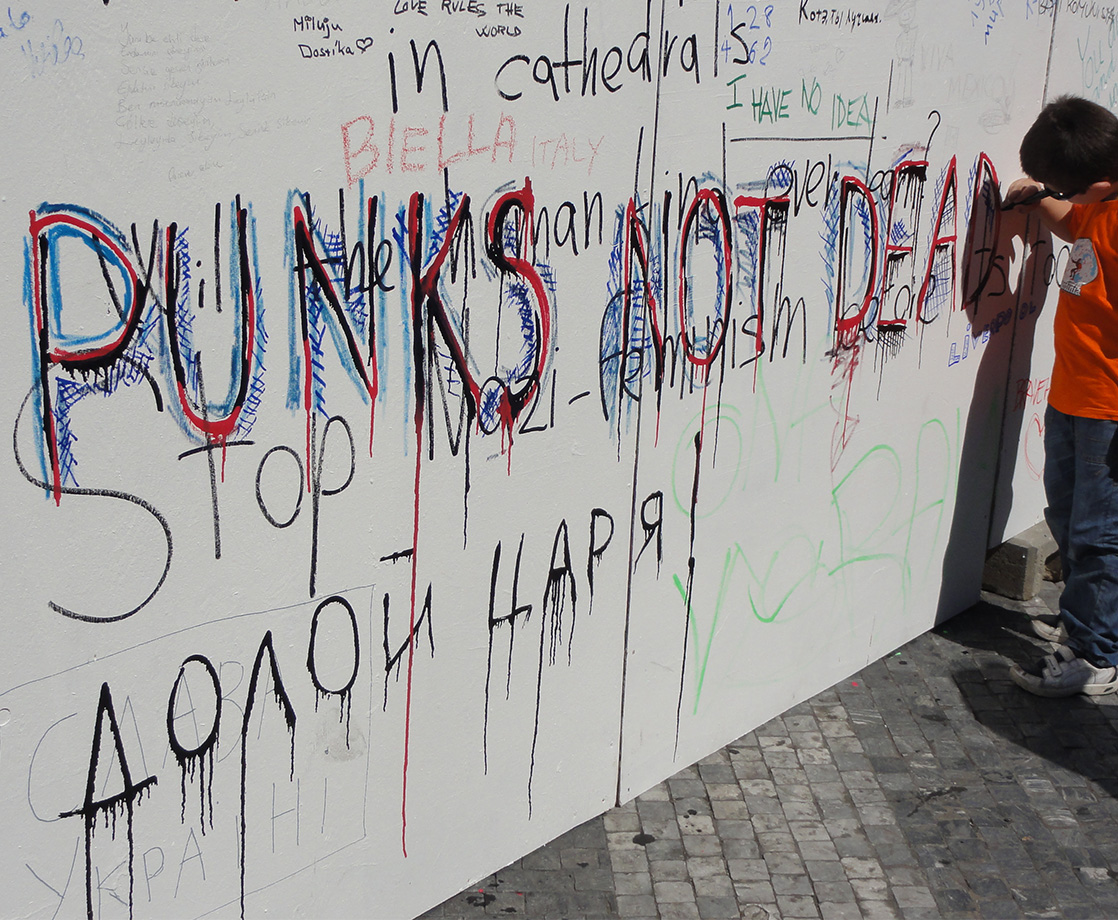Lead photo via Wikimedia Commons
With his Twitter announcement that trans individuals would no longer be allowed in the military, Donald Trump has begun to govern by Twitter decree. This is as good a time as ever to read Andrew Gumbel’s essay in the Los Angeles Review of Books, “Is This Fascism?” In the piece, Gumbel notes that while Trump’s most autocratic instincts have been blunted by both the constitutional limits of the presidency, as well as public outrage, “the underlying structural problems” that led to Trump in the first place –– underfunded public education, hyper-partisan media, the normalization of political chicanery, populists on the far-right fringe riding a wave of shady donations into the mainstream –– still remain.
And just because we defeat this Trump doesn’t mean we’ve insulated ourselves against another one. It’s almost enough to make you feel powerless, but instead of giving it up on anything being OK ever again, you should spark up a joint, read this lovingly curated selection list of links whose contents will make your brain explode if you’re high, and keep your head up.
Pothead One: Everyone in the East Village Until 2000
Given that New York City has turned into a prohibitively expensive yuppified shitsville over the past couple decades, the arrival of Jeremiah Moss’s book Vanishing New York: How a Great City Lost Its Soul should be greeted with cheers by anyone with either a brain or a heart. Longreads has excerpted the book’s first chapter, in which Moss recounts how he discovered the East Village as a 22-year-old punk:
For over a century, the East Village provided an uncommon space. It was, among other things, a long-sought-after refuge for those who never quite felt at home anywhere else. Reclusive misanthropes and creative exhibitionists, builders of junk towers and makers of psychedelic gardens, poets, punks, and queers, activists and anarchists, dominatrices and drug addicts, graffitists, nudists, and underground cartoonists all found a home in the East Village. A barricade of deviance and grit kept much of the straight world out, protecting the neighborhood’s unconventional character. But at the end of the 20th century, the East Village was invaded, its territory seized, and those of us who’d found our first true home between Astor Place and the East River were displaced. For many, that displacement was physical, one kind of eviction or another. For many more, the displacement has been emotional, a jarring dislocation of the psyche.
Read the whole thing here, and then you should probably go ahead and buy the book as well.
Pothead Two: Lincoln Michel
I don’t know the writer Lincoln Michel, so I can’t say for sure whether or not he actually smokes weed. But I feel completely qualified to recommend that you get high and read this amazing short story he wrote about an elderly werewolf, which evolves from pure comedy into a meditation on the frailty and futility of the human condition.
Pothead Three: People Who Are Not on Twitter
In this instance, the word “pothead” is a stand-in for “people who have the right idea,” a phrase which itself is a stand-in for “people who don’t go on Twitter too often.” Twitter Dot Com is a wretched website that far too frequently shrinks discourse down to a duel where the weapon of choice is virtue signaling and the winner is predetermined based on their online popularity. For a more detailed explanation of why Twitter deserves to die, read Awl editor Sylvia Killingsworth’s missive about the site. “Twitter is ultimately a giant chat transcript,” she writes, “and we all look like idiots.” Not gonna argue with that one, TBH.
Pothead Four: NPR
As Heather Radke writes in The Paris Review, the salad days of NPR offered listeners some truly weird shit. Think a hard news report transitioning to a straight-faced interview with a horse, or a guy hitchhiking to NPR’s headquarters and convincing some producers to air the interviews with strangers he’d recorded along the way. As someone who is fascinated by the radio as a form –– not just for its content but for its ability to unite millions of strangers through simultaneous communal listening –– Radke’s piece spoke to me. “I crave strange voices coming to me when I turn my radio on at just the right moment,” the piece states, concluding, “I miss audio that critiques the world in both content and form, giving me access to… people whose narratives don’t follow the rules, whose stories won’t be the ones that top iTunes ratings, and whose lives won’t make you scream, Oh my God!” In other words, vintage NPR made it so you didn’t need weed –– the radio itself became a trip of its own.
Follow Drew Millard on Twitter











